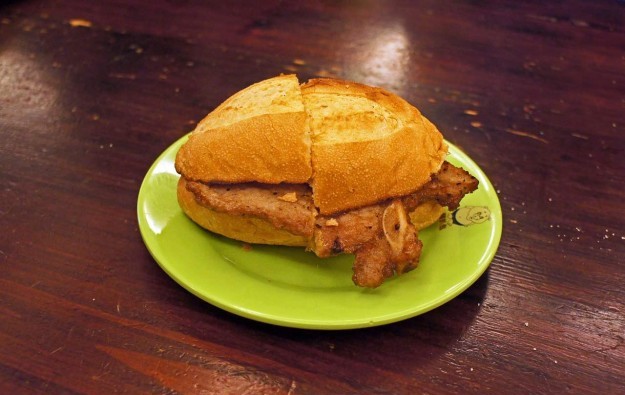Non-gaming nod as Macau named UNESCO gastronomy hub
Nov 01, 2017 Newsdesk Latest News, Macau, Top of the deck

Macau has been recognised for its food culture when being added to the Creative Cities Network of the United Nations Educational, Scientific and Cultural Organization (UNESCO).
According to a Tuesday announcement by UNESCO, Macau was among 64 cities accepted for special recognition regarding a specific cultural activity. The Macao Government Tourism Office (MGTO) had said in its “Tourism Industry Development Master Plan” published in September, that the city’s government had applied to UNESCO in 2016 for such a listing.
The designation of Macau as a member city of the UNESCO Creative Cities Network in the field of “gastronomy” would “bring new opportunities for the city to diversify the economy, with gastronomy as a driver to preserve Macau’s cultural identity,” said a statement from the Office of the Secretary for Social Affairs and Culture.
Andrew Klebanow, a senior partner of U.S.-based consultancy Global Market Advisors LLC, told GGRAsia: “The UNESCO designation will further enhance Macau’s stature as a world-recognised dining destination and further help position the city as place that offers far more than gaming and sight-seeing.”
He believes that UNESCO’s decision “recognises both the unique dining culture in Macau… and the profound effect that the SAR’s casinos have played in attracting an incredible array of world class dining operators”.
“Macau’s casinos serve as a magnet for some of the world’s best restaurateurs and it is important to recognise the gaming industry’s role in making Macau a destination for creative dining experiences,” added Mr Klebanow.
The analyst said that while casino resorts can provide restaurants with potential patrons and relatively favourable lease terms, having prestigious restaurants in their properties helps to enhance their own brand.
According to data from Macau’s Statistics and Census Service, visitors to Macau spent on average MOP355 (US$44.18) per head on food and drink in 2016, accounting for 20.9 percent of the total per-capita spending of visitors.
In its tourism master plan published on September 28, MGTO had reiterated its estimate that annual aggregate non-gaming spending by visitors to Macau could reach between US$12 billion and US$14 billion in 2025.
The Macau government has a non-gaming revenue target for the casino industry, which is set at 9 percent per year.
Macanese food, a fusion of the culinary traditions of Portugal – the administrative authority in Macau for nearly 450 years until 1999 – and Chinese food traditions, has been recognised locally since 2012 as part of the city’s intangible cultural heritage. The city’s architectural tradition was recognised by UNESCO in 2005, when the historic centre was added the the organisation’s World Heritage List.
The latest UNESCO designation would help the city’s government in “promoting sustainable development and expanding its international cooperation,” added the statement issued on behalf of the Secretary, Alexis Tam Chon Weng.
He said: “Macau expects the designation to bring a positive impact on the sustainable development of the city, via inheritance, creativity and exchange in the gastronomy field.”
UNESCO stated that all the newly-designated cities “join a network at the front line of UNESCO’s efforts to foster innovation and creativity as key drivers for a more sustainable and inclusive urban development”.
The UNESCO Creative Cities Network was created in 2004. It highlights its members’ creativity within seven fields: crafts and folk art, design, film, gastronomy, literature, media arts and music. Currently, the network includes a total of 180 cities in 72 countries.
“While differing geographically, demographically or economically, all Creative Cities commit to develop and exchange innovative best practices to promote creative industries, strengthen participation in cultural life, and integrate culture into sustainable urban development policies,” the UN body said.
(Updated at 1.20pm, November 3)
Related articles
-
 Sands China 2Q EBITDA down q-o-q amid...
Sands China 2Q EBITDA down q-o-q amid...Jul 25, 2024
-
 Philippines 2024 tourist receipts may...
Philippines 2024 tourist receipts may...Jul 24, 2024
More news
-
 Donaco EBITDA up y-o-y to above US$4mln...
Donaco EBITDA up y-o-y to above US$4mln...Jul 26, 2024
-
 HK listed Palasino upgrades Czech...
HK listed Palasino upgrades Czech...Jul 26, 2024
Latest News
Jul 26, 2024
Border-casino operator Donaco International Ltd has achieved a 164.17-percent year-on-year increase in its latest quarterly group earnings before interest, taxation, depreciation and amortisation...Sign up to our FREE Newsletter
 (Click here for more)
(Click here for more)
Pick of the Day
”We’ve got more traction outside of Macau at the moment. But Macau’s going be a bigger focus for us”
David Punter
Regional representative at Konami Australia
Most Popular
 Sheraton brand to exit Londoner Macao, to be Londoner Grand July 25, 2024
Sheraton brand to exit Londoner Macao, to be Londoner Grand July 25, 2024  Macau regulator probes unlicensed gaming agents July 24, 2024
Macau regulator probes unlicensed gaming agents July 24, 2024  Philippines gives 20k aliens in POGOs 60 days to leave July 25, 2024
Philippines gives 20k aliens in POGOs 60 days to leave July 25, 2024  Philippines-listed DigiPlus says not affected by POGO ban July 24, 2024
Philippines-listed DigiPlus says not affected by POGO ban July 24, 2024  Sands China 2Q EBITDA down q-o-q amid low hold, renovation July 25, 2024
Sands China 2Q EBITDA down q-o-q amid low hold, renovation July 25, 2024






